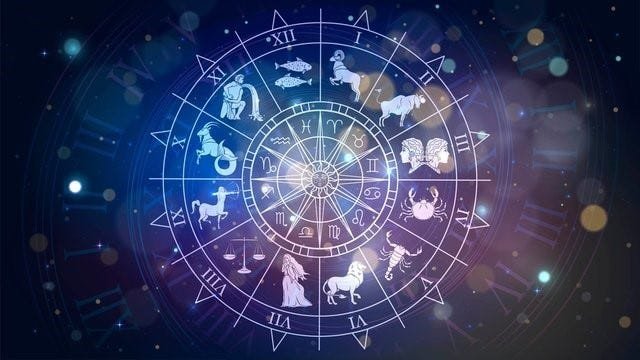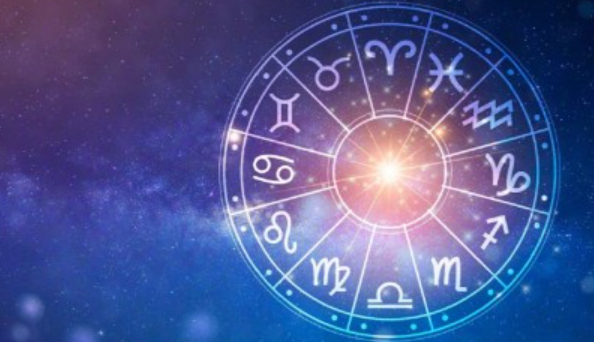The fascination with astrology spans centuries, captivating minds with its promise to unveil the mysteries of the cosmos and provide insights into our lives.
From horoscopes in newspapers to detailed birth chart readings, the language of the stars has intrigued and inspired countless individuals.
In this article, we embark on a journey to explore the zodiac signs, their meanings, and how they shape our personalities and destinies.

Unraveling the Zodiac:
A Brief Overview
At the heart of astrology lies the zodiac, a celestial belt divided into twelve equal parts, each representing a specific astrological sign.
From fiery Aries to watery Pisces, each sign carries its unique energy, characteristics, and symbolism.
Understanding the zodiac requires delving into the elemental properties, modalities, and ruling planets associated with each sign.
The Elemental Essence of the Signs
In astrology, the elements—fire, earth, air, and water—play a significant role in shaping the personality traits of each zodiac sign.
Fire signs (Aries, Leo, Sagittarius) embody passion, creativity, and enthusiasm, while earth signs (Taurus, Virgo, Capricorn) are grounded, practical, and reliable.
Air signs (Gemini, Libra, Aquarius) are known for their intellect, communication skills, and adaptability, while water signs (Cancer, Scorpio, Pisces) are intuitive, emotional, and empathetic.
Exploring Modalities:
Cardinal, Fixed, and Mutable
In addition to elements, modalities—cardinal, fixed, and mutable—further characterize the zodiac signs.
Cardinal signs (Aries, Cancer, Libra, Capricorn) are initiators, heralding new beginnings and taking charge of situations.
Fixed signs (Taurus, Leo, Scorpio, Aquarius) are stable, determined, and often resistant to change, preferring security and consistency.
Mutable signs (Gemini, Virgo, Sagittarius, Pisces) are flexible, adaptable, and adept at navigating transitions and complexities.
The Influence of Ruling Planets
Each zodiac sign is ruled by a specific planet, bestowing upon it unique qualities and attributes.
For example, Mars governs Aries, endowing individuals with assertiveness, courage, and a pioneering spirit, while Venus rules over Taurus and Libra, imparting a love of beauty, harmony, and indulgence.
Understanding the ruling planet of a sign provides deeper insights into its motivations, desires, and behavior patterns.

Personalized Horoscopes:
Navigating Life’s Journey
Astrology offers more than just generalized personality traits; it provides a personalized roadmap for navigating life’s twists and turns.
By analyzing the positions of celestial bodies at the time of birth, astrologers create birth charts, also known as natal charts, which serve as unique blueprints of an individual’s personality, strengths, challenges, and life purpose.
These charts offer valuable insights into career paths, relationships, and personal growth opportunities.
The Power of Compatibility:
Love and Relationships
One of the most popular applications of astrology is in the realm of relationships.
By comparing the birth charts of two individuals, astrologers can assess compatibility and predict the dynamics of their relationship.
Certain zodiac signs naturally complement each other, while others may face challenges that require understanding and compromise.
Whether seeking love or strengthening existing bonds, astrology provides valuable guidance for fostering harmonious connections.
Harnessing the Lunar Cycle:
Moon Signs and Emotional Intelligence
While the sun sign represents the core essence of an individual’s personality, the moon sign delves into their emotional landscape.
The moon governs our instincts, emotions, and subconscious desires, offering insights into how we process and express feelings.
Understanding your moon sign can enhance emotional intelligence, allowing for greater self-awareness, empathy, and emotional resilience.
Embracing the Shadow:
The Dark Side of Zodiac Signs
Just as each zodiac sign has its positive attributes, it also harbors shadow aspects that can manifest as challenges or negative tendencies.
For example, the fierce independence of Aries can veer into impulsiveness and aggression, while the analytical nature of Virgo may lead to perfectionism and self-criticism.
Acknowledging and integrating these shadow qualities is essential for personal growth and balance.
Conclusion
Astrology serves as a timeless tool for self-discovery, empowerment, and personal growth.
By deciphering the language of the stars, we gain a deeper understanding of ourselves, our relationships, and our place in the cosmos.
Whether seeking guidance in love, career, or spiritual fulfillment, the zodiac offers a wealth of wisdom waiting to be explored and embraced.

FAQs:
1. Is astrology based on scientific evidence?
While astrology is not considered a science in the traditional sense, it has its roots in ancient astronomical observations and mathematical calculations.
While there may not be empirical evidence to support all astrological claims, many individuals find value and meaning in its insights.
2. Can astrology predict the future?
Astrology offers insights into potential patterns and tendencies based on celestial alignments, but it does not provide concrete predictions of specific events.
It is important to approach astrology with a sense of openness and curiosity rather than relying solely on predictions.
3. Are zodiac sign compatibility charts accurate?
Zodiac sign compatibility charts can offer valuable insights into relationship dynamics, but they should not be viewed as absolute determinants of success or failure in relationships.
Factors such as communication, mutual respect, and shared values play significant roles in relationship compatibility.
4. Can astrology be used for career guidance?
Yes, astrology can provide valuable insights into potential career paths, strengths, and challenges based on an individual’s birth chart.
By aligning with their astrological profile, individuals can make informed decisions about their professional pursuits.
5. How often should I consult an astrologer?
The frequency of astrological consultations is a personal choice and may vary depending on individual needs and circumstances.
Some people find value in regular check-ins, while others may consult an astrologer during key life transitions or when seeking guidance on specific issues.
Ultimately, it is essential to follow your intuition and seek guidance when it feels necessary.

